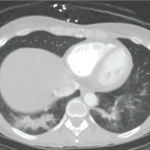
As a rheumatologist, it’s likely that most of your technology-related discussions revolve around electronic health records, voice dictation software, database management, or similar practice topics. Maybe you dabble in online forums, fancy yourself a bit of a Photoshop wizard, or even blog. Still, like me, you’ve probably begun to see how technology is permeating (or invading, take your pick) nearly every aspect of our personal and professional lives. It’s a challenge to keep up with what’s new and emerging – and what areas could benefit from technological tools. Much like exploring how therapies effective for one condition might be viable for treating another, it’s a challenge to figure out how technology applied in one area can be beneficial elsewhere.
Like most organizations, the ACR has leveraged technology to improve our day-to-day operations as well as member services. For example, you can access the journals and other publications, register for meetings, submit an abstract, download patient information and practice tools, and renew your membership online. You can also view Webcasts from our meetings, subscribe to various ACR/ARHP list serves, participate in our online recertification and maintenance of certification offerings, and search for jobs. Still, we continue to face a number of technological challenges in areas such as practice management, practice improvement, quality measurement, cost management, education, and recertification. The ACR also continually implements new internal technologies – such as our new association management system.
Like me, you’ve probably begun to see how technology is permeating (or invading, take your pick) nearly every aspect of our personal and professional lives.
TLC for Rheumatologists
To coordinate these diverse technology projects and help our members (particularly those in practice) understand the rheumatology-specific issues surrounding technology, we’ve created the Technology Leadership Council (TLC). Its charge is to coordinate and facilitate optimal use of information technology by members, staff, and volunteers so that the ACR can meet its strategic goals and members’ needs effectively.
The TLC will coordinate (rather than implement) work done by other ACR entities to ensure interoperability, prevent overlap of effort, promote optimal use of ACR resources, and maintain transparency within the organization, while also ensuring compatibility with established information technology standards, principles, and laws. The TLC will have a consultative and coordinating role in ACR information technology projects, such as data collection, implementation of quality instruments, and electronic patient records. It will be divided into five working groups – quality, research, practice, education, and general technology – so that members can focus on issues pertinent to their expertise. ACR Vice President Sherine Gabriel, MD, has agreed to chair the TLC and will be joined by several volunteers and staff who have an interest in this area.

